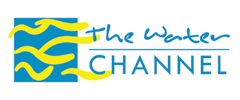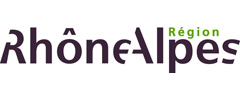How to Stimulate Local Economies through Sustainable Innovations for Home Comfort?
The EuropeAid funded WECF project “Home Comforts” has demonstrated solutions how to find affordable and sustainable ways towards improved living conditions in rural areas of Kyrgyzstan
12.06.2013 |WECF

Anara Chotonbaeva giving her presentation during the conference, pictures: Evgeny Grechko
The EuropeAid funded project “Home Comforts” has demonstrated solutions how to find affordable and sustainable ways towards improved living conditions in rural areas of Kyrgyzstan. An overall aim is to bridge the divide between rural and urban areas in Kyrgyzstan, so that the villagers, especially the young, can stay in the rural areas and, instead of dealing with lack of basic infrastructure, have more time to spend on education, work and business.

The conference included excursions to the project villages so that the participants could have a look at the implemented adapted technologies which cover three aspects essential for an improved living standard: comfortable heating, warm water and safe sanitation in the house. Energy efficient stoves, solar water heaters and ECOSAN toilets have been installed in each of the nine villages for demonstration. They are located in public places, mostly in the Community Drinking Water Users Unions (CDWUU) offices but also in a post office, in village health stations and in kindergartens.
Claudia Wendland as WECF´s Water and Sanitation Expert presented the sustainable sanitation technology, which has been implemented. These so called ecosan toilets allow the implementation adjacent to the house or even indoor as, though being used without flush water, they do not smell. “Many villagers appreciate not only the increased comfort of the ecosan toilet but also the use of the collected urine as nitrogen rich liquid fertilizer,” summarized Wendland.
Ulan Amanturov from the Kyrgyz NGO CampAlatoo presented the technology of the energy efficient stove and the training where a group of masters were trained. This type of stove saves around 40% of the energy required and can heat more than one room in the house. He adds, “The EES is ecologically friendly in comparison with traditional stoves. EES is comfortable to use and cleaning is necessary just once in three years.” As an example, Maratbek Orozakunov from Chyrak, participated in the training on EES construction, became a master and built 20 EES in Chyrak and neighbouring villages which the households financed themselves.
Markus Brandhofer, energy expert from the German company Solar partner Süd, explained the solar collector technology and how it had been adapted to local Kyrgyz conditions. Especially the severe Kyrgyz winters are a challenge for the system which needs to be well insulated. Imash Azarbaev of the Chyrak resource center has implemented the first solar collectors: “The villagers show a big interest in this local made technology and I have already more than 20 orders for solar collectors.”
“After successful demonstration, one challenge for up-scaling the environmental infrastructure technologies are the lacking financing options for the villagers”, explains Claudia Wendland, the overall project coordinator at WECF. More detailed results and findings about costs and benefits of the technologies can be found in the feasibility study: The EES and SWH have good economic pay-offs compared to the traditional ways of heating or bathing. In fact, the savings they generate are respectively € 800 and € 1400 over a period of 10 years. A UDDT is cheaper than a VIP latrine after 4 years, and it increases the comfort of householders.
The results of the survey show that villagers, who often face challenges in their daily routines, are ready to take risks to improve their comfort and security. About 60% of the respondents indicated to be willing to take a micro credit for one of the technologies. 6 to 11% of the respondents are willing to invest the full cost of the technologies, and 23 to 30% half of it. This has been confirmed by the self-financed replications of energy efficient stoves during the project. Women are in general more hesitant to take a micro credit than men. For them it is of higher priority to have an Ecosan toilet than for men.
The school children demonstrated the benefits from their perspective during the conference and showed their results of the developed action plan.

During the conference, the participants worked in groups to develop policy recommendations around the topics - increased availability of micro credit with low interest rates, enabling political frameworks and additional capacity building - which will be discussed with parliamentarians, ministries and NGOs in the coming time. They will support the ongoing policy processes such as the National Policy Dialogue on Water and Sanitation.
More information about the Home comforts project can be found here
Project coordinators:
Claudia Wendland Claudia.Wendland@wecf.eu
Anara Choitonbaeva achoitonbaeva@list.ru
Please see feasibility study here.
Related News
Meet the Winners of the Gender Just Climate Solutions Award at COP24
On the 70th anniversary of the Universal Declaration of Human Rights, we awarded Gender Just Climate Solutions Winners at the climate negotiations in Katowice, Poland
11.12.2018
Invitation: Gender Just Climate Solutions Award 2018
10 December, COP24 Katowice
04.12.2018
Getting to the Future We Want
4-7 November, Brussels: European Environmental Bureau’s (EEB) Annual Conference
12.11.2018
GoodFood4All
WECF and partners all over Europe start GoodFood4All Campaign
06.11.2018
#Ruralwomen: join our Women2030 campaign!
15.10.2018





































